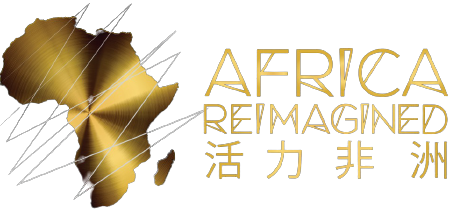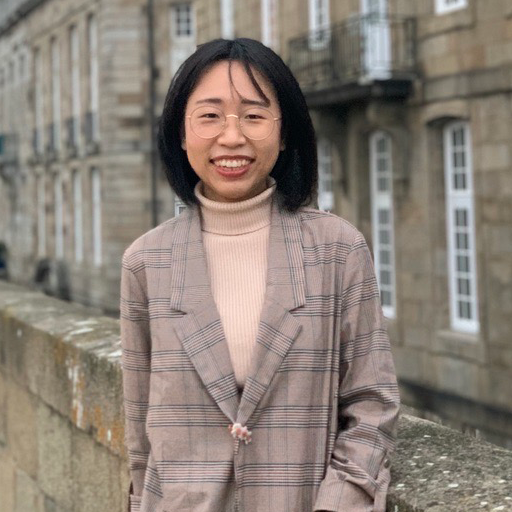
The China International Import Expos (CIIE) has proven to be a great opportunity for African businesses to gain access to China’s vast consumer market, but is it enough? Most African products that have been displayed are agricultural products which limits the CIIE’s impact on lifting African economies to a higher level and showcasing the true potential of Africa’s exports to China. Although the CIIE plays an important role in promoting African products to Chinese consumers, more efforts can be made to diversify the types of African products that are displayed to boost Africa’s value-added exports to China.
Held annually since 2018 by the Ministry of Commerce of the People’s Republic of China Shanghai Municipal People’s Government, the CIIE serves as a vital platform for the Chinese market to establish global business relationships. The CIIE is also a foremost Chinese expo for businesses and brands from across the globe to enter or expand their businesses in China. It generates a vast amount of investment, business deals and sales – this year’s CIIE generated deals worth US $78.41 billion – a 6.7% increase from 2022.
African embassies and businesses also attend the CIIE to promote African products and source new inroads into the Chinese market. In line with the Chinese government’s mandate to promote African products to boost Africa’s agricultural exports to China, the CIIE offers promotional and funding support for African embassies in China and businesses.
Past CIIEs have proven to be an impactful platform to launch African products in China. For example, Kenya has been shipping frozen avocados to China since 2019 but used CIIE 2022 to showcase its fresh avocados to increase exports. Now, 30% of Kenya’s avocado exports are destined for China up from US $1.08 million in 2022 to US $7.60 million within the first nine months of 2023. Mpundu Honey from Zambia, a brand which has been exhibiting since the first CIIE, have annually scaled up displays and orders from under one ton in 2018 to nearly 20 tons in 2023.
The national pavilion of South Africa, which was one of the five countries of honor on this year’s CIIE.
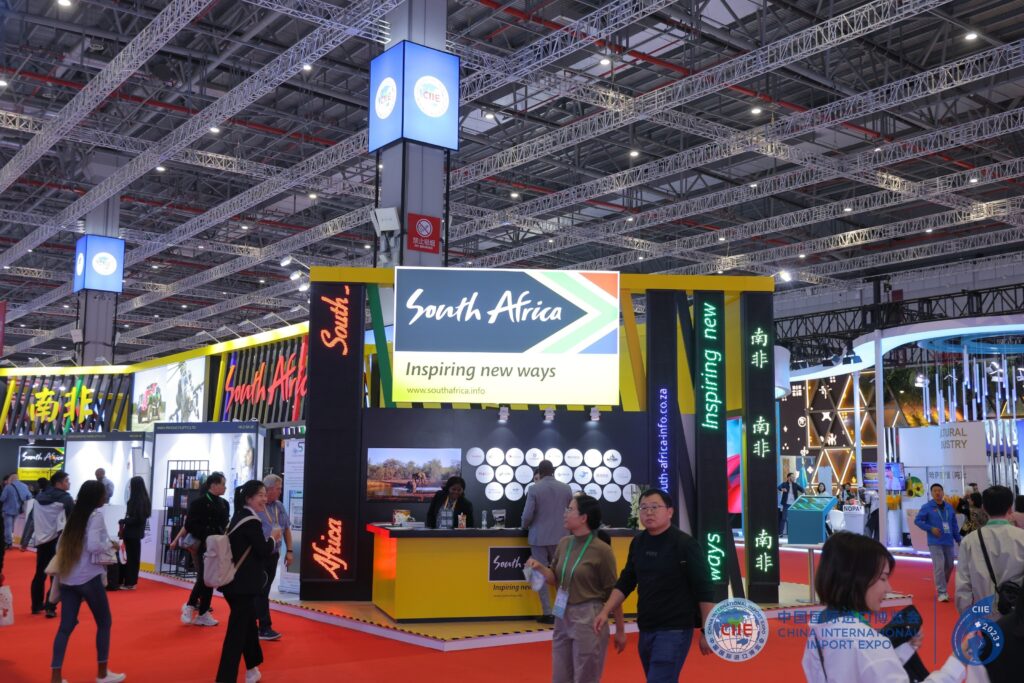
This year’s CIIE was an even bigger success with 43 African country pavilions, 27 stands for African businesses and organizations and 20 African agricultural companies. South Africa, China’s largest African trade partner and BRICS member, was bestowed as country of honor and free booths and tax benefits were extended to African least developed countries. This year also saw several African nations exhibit for the first time including Central Africa, Gambia, Guinea-Bissau, Mali, Sierra Leone, Togo and Zimbabwe.
Pineapple from Benin which received a lot of interest from visitors and media during its first appearance at the CIIE.
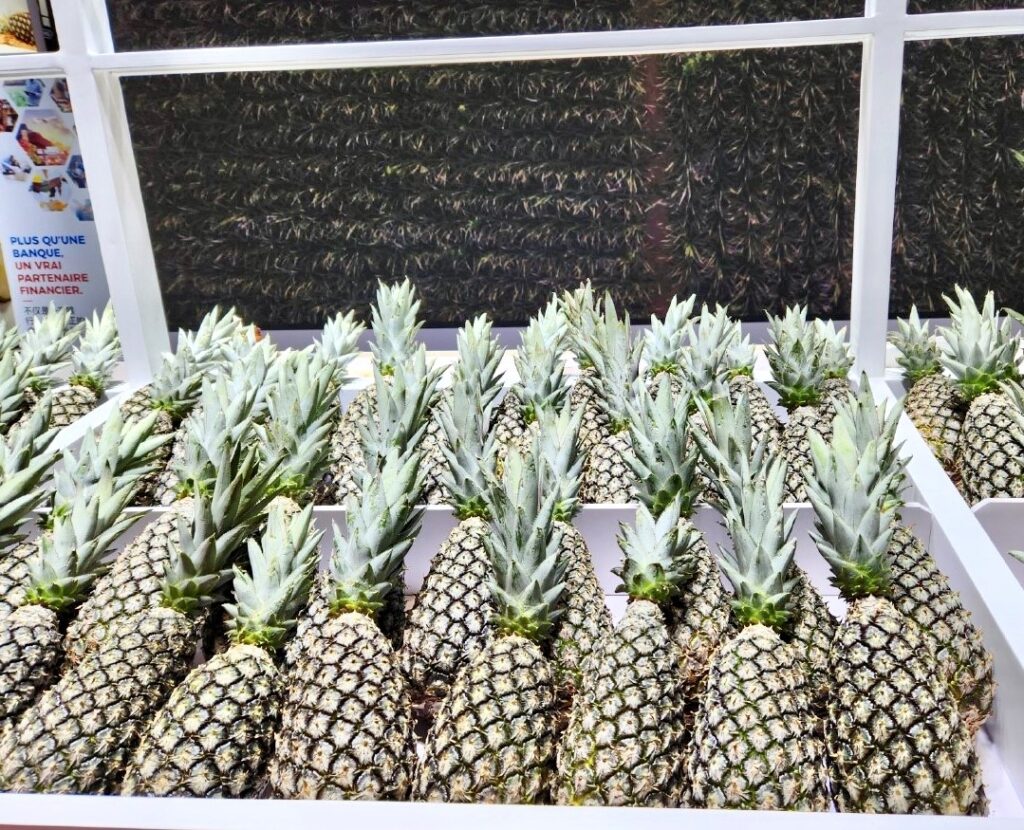
New African products were also displayed and garnered substantial attention. For example, just two months after signing an export agreement with China for its pineapples, Benin presented its sweet pineapples to Chinese consumers and businesspersons, which attracted crowds of attendees and media. African branded products were also on display, such as skincare products from Organic Trade & Investment skincare, Comafrica, Ingram’s, SHEACOCOA and Aloe Master Care. There were also wines from Presidential and Golden Velvet, Rooibos tea from Cape Valley, juice from Mazoe, cocoa powder from Cocoa LOVE and accessories from Shlobo Designs. Besides consumer products, Rethread Africa from Kenya presented their biodegradable textile fabric technology in the Innovation Incubation Zone, while Patrick Kwete from the DR Congo exhibited a self-developed AI robotic arm.
In addition, our firm, Development Reimagined, in partnership with the International Trade Centre (ITC), provided pre-CIIE training for over 67 SMEs from developing countries including 13 African countries that displayed their products in the ITC booth and met with business partners with the support of ITC. Their exhibits included cosmetics, handicrafts, homeware, wine, food, spices and other agricultural products.
But in comparison to other regions, Africa’s presence at the CIIE is tiny. Out of 3,813 exhibitors only 106 were from Africa, making Africa the least represented region (Africa also contributes the least amount to China’s global imports). Furthermore, over 60% of the African products on display were unprocessed, unbranded agricultural products and less than 10% were branded, non-agricultural products. There were also high levels of product repetition, creating unnecessary competition. For example, there were at least seven African coffee brands from five different countries and shea butter was showcased in a number of African pavilions. It was also noteworthy that the branded products received relatively little media coverage in comparison to the agricultural products, which suggests Africa is still seen as a source of primarily unprocessed products by Chinese media.
The arrival of new African products and businesses at CIIE is encouraging and creates new opportunities for many countries and companies to gain access to the Chinese market. However, the over emphasis on low-value, unprocessed products means that the benefits to exporting countries in terms of economic growth, job creation and industrial chain advancement are, ultimately, limited. This is especially problematic for a continent with ambitions manufacturing goals.
Crowds gather at the national pavilion of Mali to watch exhibitors performing with Djembes.
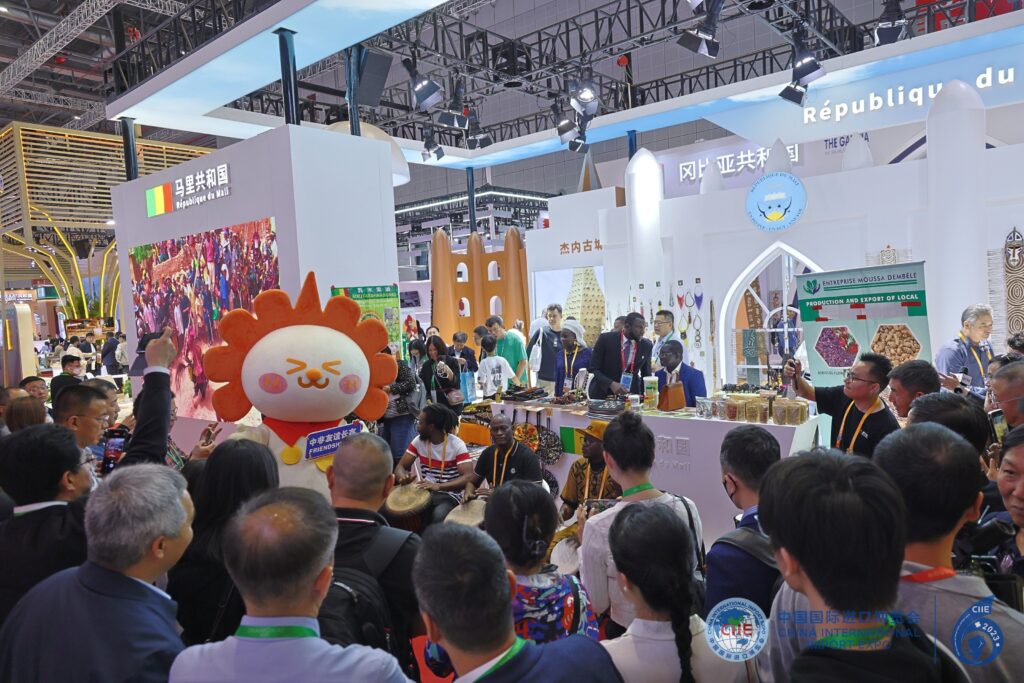
To enhance the impact of CIIE on African economies and Africa-China trade, the Chinese government should work with the African diplomatic core in Beijing to select a wider variety of value-added, branded products for the CIIE and bring more media exposure to these products including their specific Geographical Indications. Hosting specifically Sino-African business match-making events for these products, should also be considered to increase sales and promotional opportunities. Organizations, such as ITC and DR can also take the lead by focusing their attention on displaying high-quality, branded goods to showcase just how rich and varied African products and brands really are.
Author: Yuejie Shi is Research and Data Analyst at Development Reimagined with a special focus on Global Trade and China-Africa Trade.
